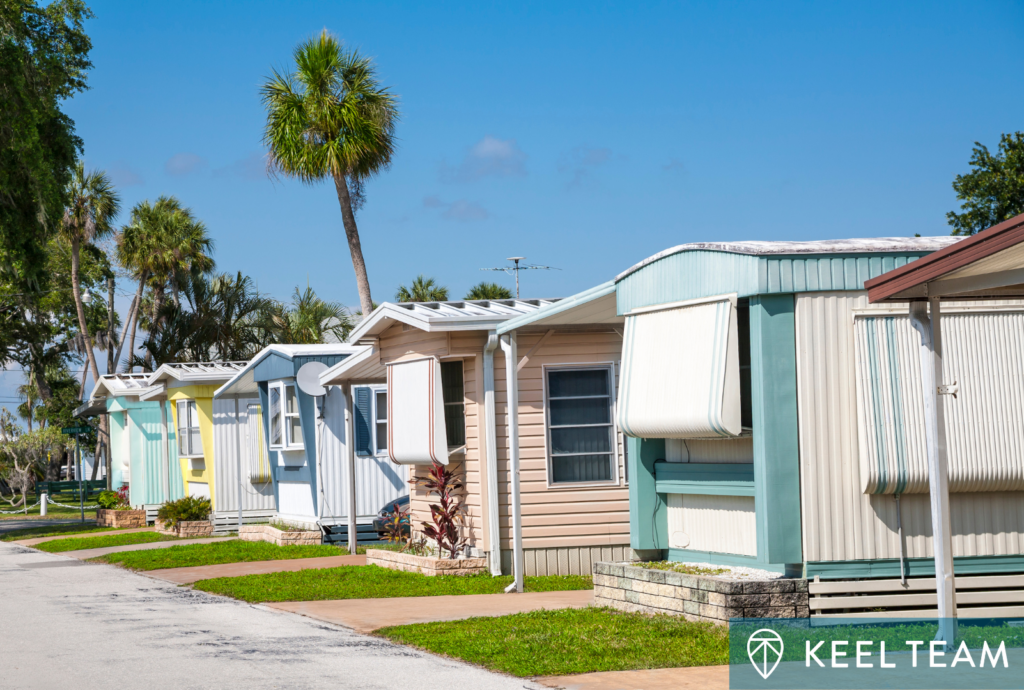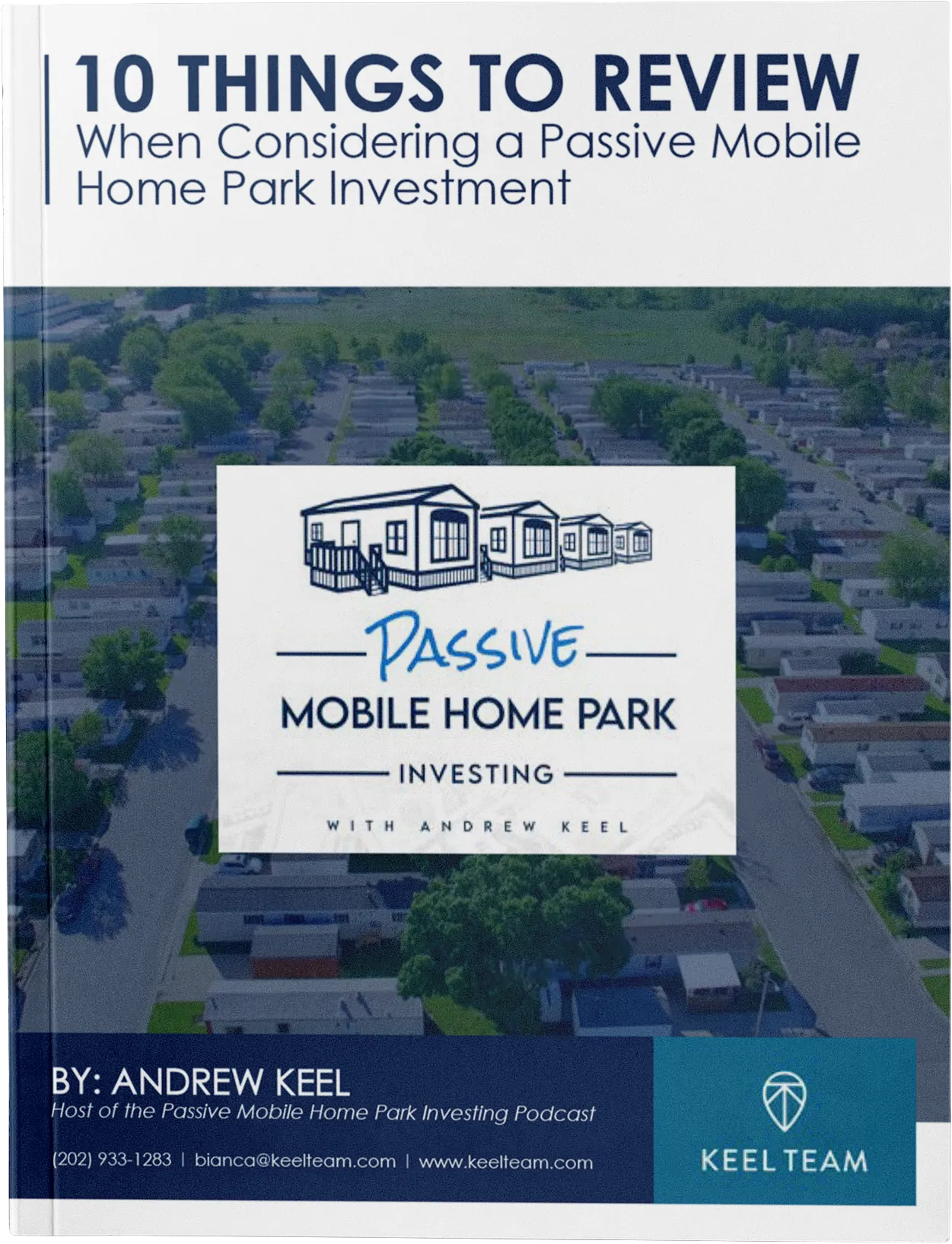The allure of apartments often conjures images of sleek and modern living spaces. Mobile home parks tend to stand in stark contrast, seemingly devoid of such glamour. Andrew recalls his first encounter he had with an investor, in an effort to have the investor join him on a mobile home park venture. Their response was resolute: “There is no way in hell I’m investing in a mobile home park with you.” The reason? The stubborn stigma attached to mobile home parks, often associated with stereotypes of “trailer trash” and low-income tenants. This prospective investor preferred the refined ambiance of country club discussions, where the topic of choice revolved around their apartment investments and a diverse stock portfolio. It’s a sentiment shared by many; the mere mention of mobile home park syndications often leads to raised eyebrows and hasty dismissals.
However, in their haste to avoid the stigma, many investors may be inadvertently bypassing an avenue of great potential returns. What’s often overlooked with mobile home parks is that many are still under the care of mom-and-pop owners, burdened by deferred maintenance and in need of fresh capital. This overlooked treasure trove of potential opportunity creates a symbiotic relationship between investors and residents. An opportunity to breathe new life into these communities, offering residents a better and cleaner place to call home.
Let’s dive into the sphere of mobile home park syndications and uncover the compelling reasons why they are a hidden gem in the real estate sector.

Minimal Ownership of Mobile Homes:
Apartments typically entail the responsibility of maintaining an entire building, which could potentially involve substantial costs. In contrast, mobile home park investments often involve owning only the land and collecting rent from residents who own their mobile homes. This arrangement potentially leads to lower repair and maintenance costs. Investors in mobile home parks can find some relief in knowing that they may not be responsible for the upkeep of individual mobile homes. Generally speaking, this overall simplicity may streamline management and potentially reduce operational expenses, which could contribute to a more cost-effective investment.
Tenant Stability:
Tenant turnover is a concern in any real estate investment, mobile home parks included. High turnover can lead to increased vacancies, leasing costs, and administrative burdens. This is where mobile home parks may present an opportunity. Residents in these parks often stay for extended periods, primarily because they own their homes. On average, mobile home parks tend to experience a notably low 5% tenant turnover rate, compared to the potentially higher turnover rates seen in apartments, often exceeding 50%. This reduced turnover can make managing mobile home parks less operationally intensive and could potentially ensure a more stable cash flow, which could be beneficial for investors seeking stability in their portfolios.
Value-Add Opportunities:
Mobile home parks offer various value-add opportunities that could potentially enhance returns. A significant aspect of mobile home park investing is that a substantial number of the 40,000+ mobile home parks in the United States are still owned by mom-and-pop owners. The top three mobile home park owners command ownership of less than 5% of the country’s total mobile home parks. In contrast, many apartment complexes with over 50 units are often managed by professional management groups that own multiple properties, which might limit opportunities for value enhancement.
This ownership structure opens the door to numerous strategies that have the potential to enhance the value of a mobile home park investment. By improving amenities, infrastructure, and management practices, savvy investors may potentially increase the income generated by the mobile home park post-acquisition. This income growth potential may result in higher returns compared to those attainable through stabilized properties.

Attractive Cap Rates:
While mobile home parks may carry a stigma due to misconceptions about their tenant base, this stigma could potentially work in favor of investors. Due to this stigma, mobile home parks may occasionally come with more favorable capitalization (cap) rates compared to apartments of similar quality. Essentially, you may be able to purchase a stream of income for potentially less capital in mobile home parks compared to what you might spend on a similar income stream in the apartment sector. Investors who can see beyond the stigma might have the opportunity to capitalize on this price discrepancy, potentially leading to substantial benefits.
Zoning Challenges Limiting New Development:
Zoning regulations play a significant role in the real estate market. In the case of mobile home parks, these regulations could potentially be a double-edged sword. While it might be relatively easier to obtain approval for new apartment developments in many areas, “Not In My Backyard” sentiments could potentially make it challenging to establish new mobile home parks, with a lot of people having a distaste and negative connotation towards this asset class. These zoning complexities may limit the supply of new mobile home parks, thus potentially preserving the value of existing ones. Consequently, mobile home parks may also enjoy insulation from oversaturation, unlike the apartment construction sector, which has seen a surge in new developments. These market dynamics could potentially factor into the long-term stability and the potential for appreciation in mobile home park investments.
Wrapping Up!
In the sphere of real estate investing, perception often shapes decisions. While mobile home park syndications have long carried a stigma, the landscape may be changing. Professional operators, like Keel Team are entering the market, infusing new capital and expertise, potentially challenging the misconceptions surrounding mobile home parks. As an investor, this could be an opportunity you may want to consider.
The market could be ripe with mobile home parks owned by baby boomers, awaiting fresh capital and modernization. Moreover, in an environment of rising interest rates, the ability to potentially increase income post-acquisition by 25-50% through value-add initiatives such as infrastructure improvements, infill projects, and submetering utilities could potentially boost cap rates. This may outpace inflation and interest rates, potentially providing investors with stable and attractive returns.
Beyond the financial possibilities, mobile home parks could offer a unique advantage as they are often known as the most affordable form of non-subsidized housing in the US. This affordability tends to make them more resilient during economic downturns compared to high-end apartments, which are more likely to susceptible to market fluctuations.
In conclusion, mobile home park syndications have faced their fair share of skepticism, but they could potentially be a hidden opportunity in the real estate sector. As this asset class becomes more accessible and transparent, it’s essential to recognize the potential for substantial returns and long-term stability that mobile home parks tend to offer. So, instead of being deterred by the stigma, you may want to consider exploring the untapped potential of mobile home park investments. The opportunities could be real, and the rewards may await those who explore the possibilities in mobile home park syndications.
Are you interested in learning more about Mobile Home Park Syndications? At Keel Team, we specialize in syndicated mobile home park investments, and we would love to provide you with valuable insights for potential success through this investment avenue. Reach out to us today!
Disclaimer:
The information provided is for informational purposes only and should not be considered investment advice, nor a guarantee of any kind. There are no guarantees of profitability, and all investment decisions should be made based on individual research and consultation with registered financial and legal professionals. We are not registered financial or legal professionals and do not provide personalized investment recommendations

